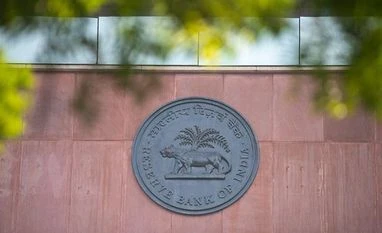The ongoing geopolitical crisis, which resulted in oil and other commodities to surge to multi-year highs, has heightened the uncertainty clouding the global macroeconomic and financial landscape, posing downside risks to the Indian economy, the Reserve Bank of India said in its monthly state of the economy report on Thursday. The economy is experiencing "spillovers" as it recovers from the third wave of the Covid-19 pandemic, the report added.
“India’s macroeconomic fundamentals remain strong. Unfolding global developments nevertheless pose downside risks in terms of spillovers,” it said.
Crude oil prices surged past $100 a barrel for the first time since 2014 after Russia attacked Ukraine last month. After touching almost $140 a barrel, Brent crude prices have now come down and are hovering around $100 levels, triggering a relief rally in Indian equities.
The report said the shock emanating from geopolitical risks hit at a time when inflation was elevated in many countries.
Moreover, with monetary policy normalisation imminent, global financial conditions could tighten further. “At the receiving end are emerging market economies, already reeling under currency depreciation, massive sell-offs by foreign portfolio investors, and slowing growth,” it said.
It observed that the global growth outlook was worsening amid intensified inflation and financial instability risks.
In the absence of an early solution to the ongoing conflict, it said, the crisis could have adverse implications for the global recovery, necessitating downward revisions of global growth for 2022 and beyond.
The report observed that in India, consumer and business confidence was rising alongside an improvement in demand conditions. “On the supply side, a resilient farm sector and a sustained retrieval in both industrial and services sectors are broadening the recovery,” it said.
The second advance estimates released by the Ministry of Agriculture and Farmers Welfare pegged foodgrains production at a record 316.1 million tonnes.
The report noted the revival in the credit cycle as reflected by fund mobilisation through certificate of deposits issuances, which surged through November 2021-January 2022 to Rs 65,298 crore from Rs 61,983 crore during April-October 2021. “With credit offtake picking up, some SCBs have raised interest rates on term deposits,” it said.
The Indian economy steadied in February 2022 after some moderation of pace in the preceding month, when the third wave was at its peak. “By March 15, 2022, however, the third wave receded sharply,” it said.
Commenting on the retail inflation figures, the report said a positive price momentum (month-on-month change in prices in the current month) of 24 bps in February was partially offset by favourable base effects (month-on-month change in prices a year ago) of 19 bps, resulting in a slight increase in headline inflation by 5 bps between January and February.
“CPI inflation, excluding food and fuel or core inflation, registered a moderation of around 15 bps to 5.8 per cent in February from 6.0 per cent a month ago,” it added.
Unlock 30+ premium stories daily hand-picked by our editors, across devices on browser and app.
Pick your 5 favourite companies, get a daily email with all news updates on them.
Full access to our intuitive epaper - clip, save, share articles from any device; newspaper archives from 2006.
Preferential invites to Business Standard events.
Curated newsletters on markets, personal finance, policy & politics, start-ups, technology, and more.
)